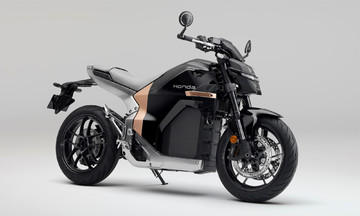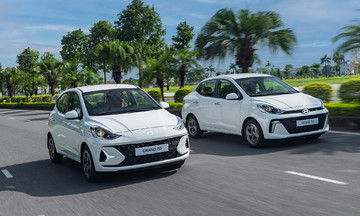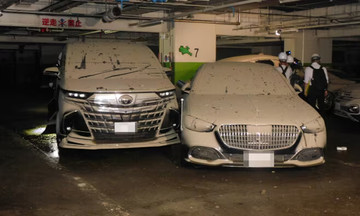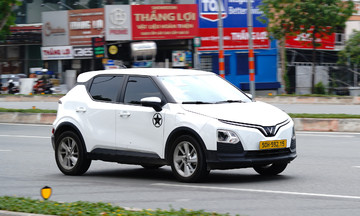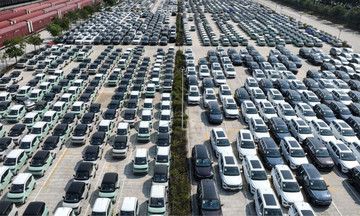Expired parking tickets and unauthorized parking in resident-only zones are typically handled by city enforcement officers. However, smart technology may soon replace these officers.
Baden-Württemberg is the first German state to permit the use of scanning vehicles to combat parking violations. As part of a pilot project, Heidelberg is the first municipality to implement this system.
According to the German Federal Ministry of Transport (BMV), vehicles are fitted with roof-mounted cameras that scan the license plates of parked cars as they drive by. These license plates are then compared against a database.
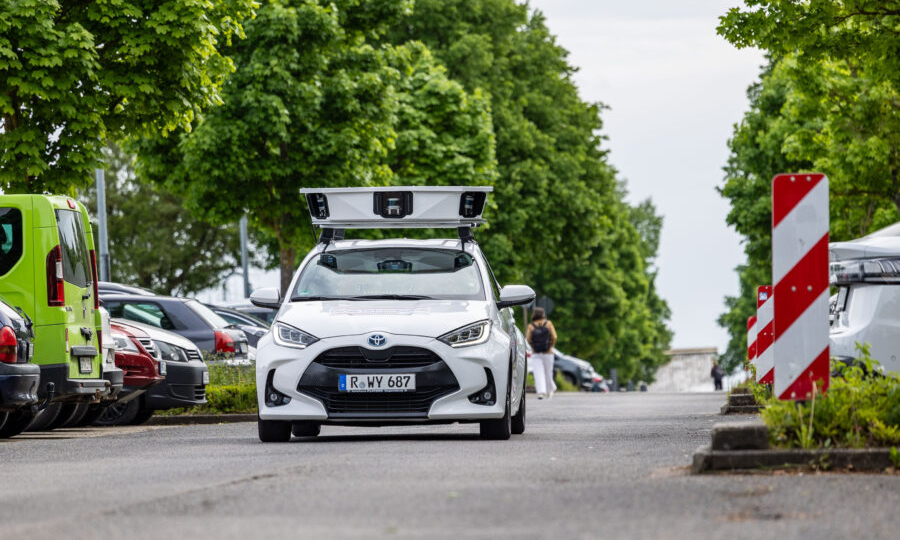 |
A car equipped with a system to identify illegally parked vehicles in Heidelberg. Photo: BMV |
A car equipped with a system to identify illegally parked vehicles in Heidelberg. Photo: BMV
The scanning vehicle can verify whether drivers have purchased tickets for paid parking or possess resident parking permits. It can also detect illegally parked vehicles, including those in bike lanes and bus lanes.
Currently, city enforcement officers patrol for parking violations in southwestern cities. Depending on the city, they patrol on foot, by bicycle, or in official vehicles. For example, Mannheim employs around 55 full-time officers for this purpose; Freiburg has 29. Heidelberg has approximately 30, and Waldshut-Tiengen has 4. According to the BMV, these scanning vehicles aim to assist, not replace, city employees.
During the pilot phase, no tickets will be issued based on the scanned data. The data will be used solely for internal evaluation of the technology and process. The first evaluation of the Heidelberg project is scheduled for Quarter 1 of 2026. Afterward, the city can decide on the long-term use of the scanning vehicles.
The BMV sees efficiency as the technology's main benefit. "A person can check up to 1,000 vehicles per hour using a scanning vehicle, compared to only about 50 on foot," a ministry representative stated.
Following an initial test at the University of Hohenheim's parking lot near Stuttgart, the BMV highlighted the effectiveness: with the scanning vehicle, all 1,237 parking spaces could be checked three times within 75 minutes. Around 40 suspected violations were detected in one pass. The ministry stated that a walking patrol would take 7 hours for the same number of checks.
Several other cities, including Mannheim and Freiburg, are also preparing for similar pilot operations.
The BMV also stated that the scanner will capture images of parked cars, license plates, locations, and inspection times. Data from illegally parked vehicles will be stored throughout the penalty process and then deleted. Data from legally parked vehicles will be deleted immediately. Pedestrians will be automatically blurred. When in operation, the scanning vehicles will be clearly marked with signs.
This technology is already in use in France, the Netherlands, and elsewhere. A BMV representative said feedback from these countries has been positive. In Amsterdam, for example, the cost of parking enforcement has been halved. The Netherlands also reported that the technology results in less hostile treatment of enforcement personnel.
My Anh (Focus)




